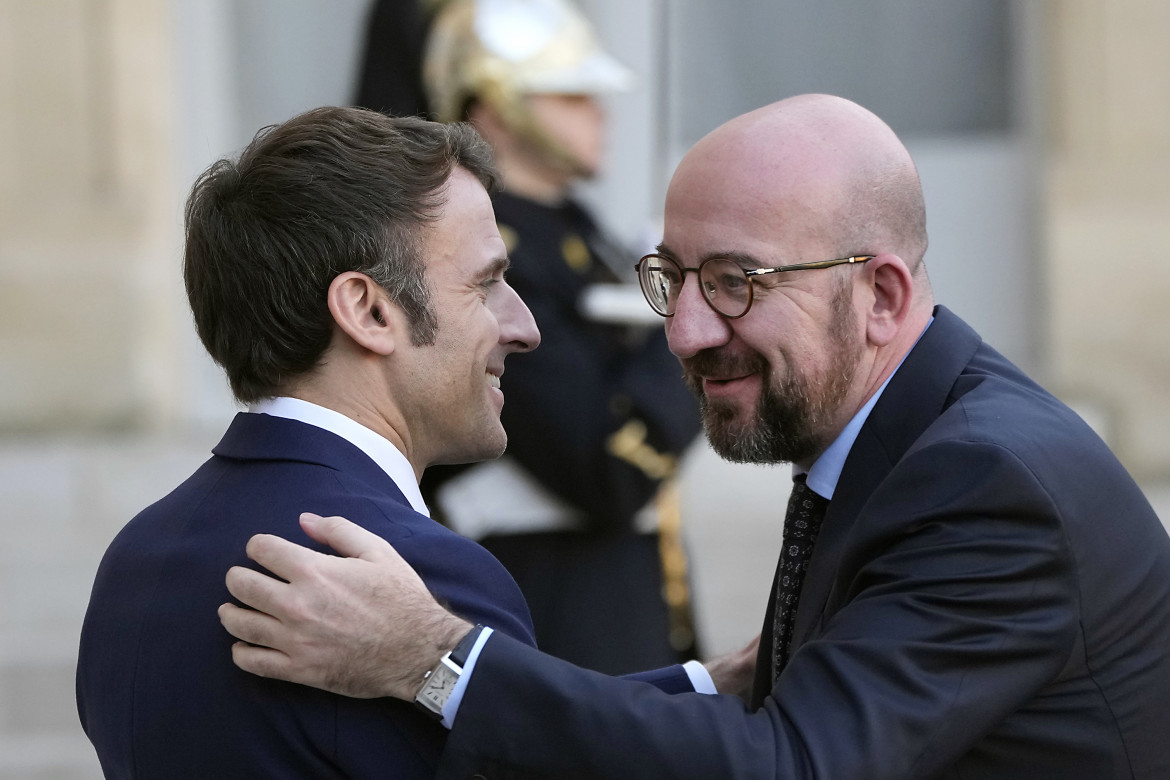Report
Faced with Russian aggression, the EU loses its pacifist soul
For the first time since 1945, Germany has decided to supply 'lethal arms' to a country at war. With the invasion of Ukraine, 'we are now in a new era,' said Olaf Scholz.

The herbivore is sprouting fangs and quickly transforming into a carnivore. After Sunday’s decision by the EU to allocate €450 million for the purchase and supply of weapons to Ukraine (plus €50 million for fuel, medical aid, etc.), on Monday the defense ministers of the 27 discussed how to “convert this financing into material and how this material is being transported to the front line, to the Ukrainian armed forces fighting against the Russian invasion,” said the High Representative for Foreign Policy and Defense, Josep Borrell. The money comes from the EU Special Fund, which has been endowed with €5 billion.
About 20 countries have already acted bilaterally, sending arms to Kiev, among them Belgium, the Netherlands, the Czech Republic, Spain, Portugal, the Baltics, France, Sweden (which is becoming less and less neutral), Finland (which will hold a parliamentary debate on whether it will apply for NATO membership), and, most strikingly, Germany, a turning point within the greater European sea change.
For the first time since 1945, Germany has decided to supply “lethal arms” — as Sunday’s EU press release put it — to a country at war. With the invasion of Ukraine, “we are now in a new era,” said Olaf Scholz. A “taboo has fallen,” Borrell commented. According to EU Council President Charles Michel, European defense “has become a very tangible reality … this weekend.” But the project of European energy taxonomy goes against this warlike enthusiasm: it excludes from “green” funding companies that have more than 5% investment in armaments production.
A logistics hub is being organized in Poland, for military but also for humanitarian aid. Hungary struck a discordant note: on Monday, Budapest refused to allow the transit of lethal weapons through its territory to Ukraine, “in order to guarantee the security of Hungary and the Hungarian community in Transcarpathia.” On Monday, Ukraine asked the G7 not only for defensive weapons, but also for fighter jets. Bulgaria said it would not send any of its MIGs. Also on Monday, the EU proposed to allow Ukraine the use of its satellite imagery.
Before the video meeting of the enlarged Quint (besides the US and the Big 4 European countries, namely Germany, France, the UK and Italy, there were also Canada, Japan, Poland and Romania, plus Charles Michel of the Council and Ursula von der Leyen of the Commission), Macron tried once again to pursue the way of mediation: he had a phone call of an hour and a half with Putin, preceded and followed by contacts with Zelensky. Macron once again asked Putin for a ceasefire, while the Russian president, according to the Elysée, “confirmed his willingness to commit” on three points: stopping bombings and attacks against civilians, the preservation of civilian infrastructure and securing road axes, particularly the road south of Kiev. But according to the news release from the Kremlin, Putin demanded the recognition of Crimea as part of Russia in return.
On Monday, Volodomyr Zelenski urged the EU to admit Ukraine as a member through a special procedure: “I am convinced that Ukraine has earned” this, he said. On Tuesday, the European Parliament discussed the aggression against Ukraine and passed a non-binding resolution supporting Ukraine’s status as a candidate. However, the prospect of Ukraine’s entry into the EU by skipping steps is raising concerns in Brussels. It is “not on the agenda,” said Borrell; while Charles Michel said there were “different views” on the subject. On Monday, Denmark argued that the Copenhagen criteria (the pre-conditions on the respect of EU values) could be changed to accelerate Ukraine’s entry into the EU.
The G7 Finance was scheduled to discuss the consequences of sanctions on Tuesday. At the conclusion of the Defense Council at the Elysée Palace, the French Finance Minister, Bruno Le Maire, said that the West was thinking about intensifying sanctions against Russia and the oligarchs, which are yielding the first results: Switzerland has agreed to align with EU sanctions as well, while the UK has prohibited Russian banks from paying in pounds.
On Sunday night, the assets of the Russian Central Bank were frozen, amounting to “tens of billions of euros” according to Le Maire, while the exclusion of a series of Russian banks from the SWIFT system (with the exception of gas payments) is strongly limiting Moscow’s commercial capabilities, affecting interest rates and the exchange rate of the ruble. France is preparing a list of the properties of Russians with a view to seizing them. The Sberbank branch in Vienna is almost bankrupt, and the Croatian and Slovenian branches are also hanging by a thread.
The economic consequences of sanctions for the EU were discussed on Monday by Macron, Ursula von der Leyen and Charles Michel at the dinner of the European Round Table for Industry at the Elysée Palace, while in the afternoon a video summit was held with Christine Lagarde of the ECB, the vice-president of the Commission, Valdis Dombrovskis, Paolo Gentiloni and the finance ministers of Germany, France, Spain, Holland and Italy. A meeting of the Energy Council on Monday discussed the EU’s need for “energy independence.” The Elysée said that “further sanctions” were being looked into.
Originally published at https://ilmanifesto.it/armi-allucraina-la-ue-perde-la-sua-anima-pacifista/ on 2022-03-01
